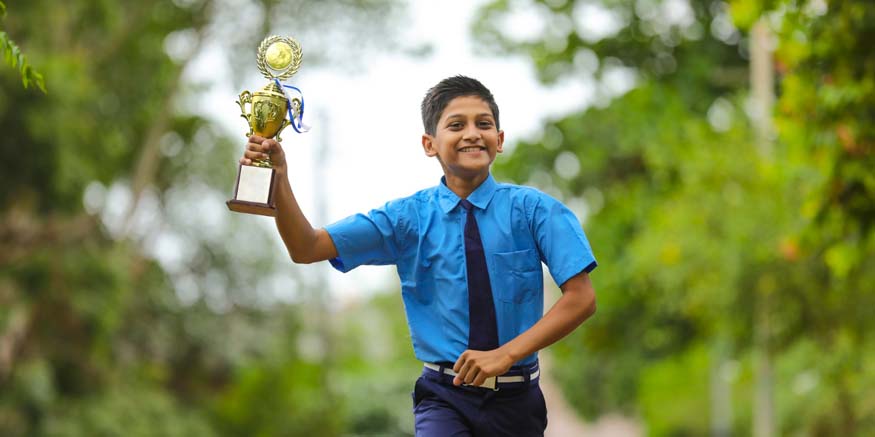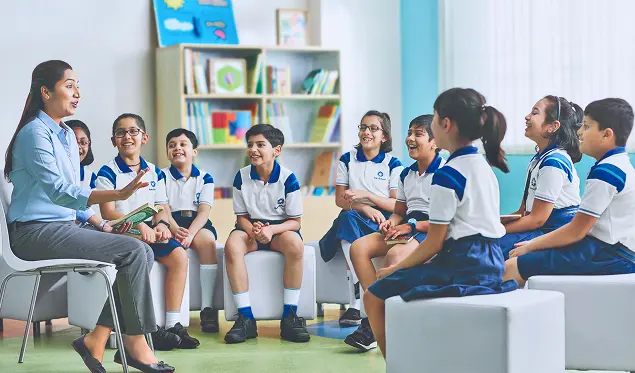Education is about teaching, learning, and gaining knowledge and life skills. It shapes a positive outlook and helps individuals contribute to society’s development. An education enhances self-confidence and self-esteem. Educated individuals tend to show empathy and respect toward others in society. They can identify solutions to problems aching society and humankind at large. At its core, education empowers individuals to support themselves, earn a livelihood, and lead a dignified life within society. It’s crucial for everyone. The United Nations outlined Universal Primary Education as one of its eight Millennium Development Goals. India’s Right to Education (RTE) Act of 2009 guarantees free and mandatory quality education for children aged six to fourteen in nearby schools.
While understandably education is important for all, irrespective of gender, race, or ethnicity, girl child education assumes special importance for various reasons.
Also Read: The Importance of Language Arts for Children’s Development
Reasons for low girl-child participation rates in formal education in India:
- Financial constraints: India, is the fifth-largest and fastest-growing economy, yet a significant portion of the population continues to grapple with extreme poverty, making it challenging for parents to meet their basic needs. In such scenarios, children’s, especially the girl child’s, education tends to get deprioritised over basic physiological survival needs.
- Male-dominated construct: The traditional patriarchal construct of Indian society has an overarching influence on girl-child education. In traditional Indian culture, a girl child is perceived as “paraaya dhan” (someone else’s property) by her parents as they are supposed to get married early and then go off and take care of their husband’s household. On the other hand, the boy stays with the parents, earns a livelihood, and even takes care of the parents in old age. This construct lies at the root of men finding priority over women when it comes to focusing on education and skill development. These beliefs lead to a natural preference for sons over daughters amongst expecting Indian parents.
- Household chores: Traditionally in India, women are expected to take care of the household work while the men go out to work to earn a living. If girls are sent to school, household chores suffer. This becomes another barrier to girl child education in India.
- Early marriages: As a result of the “paraaya dhan” paradigm, women in India are married off at a much younger age as compared to men. Since they are the responsibility and a part of the husband’s family after marriage, her education is not much of a concern for the girl’s parents. While the progressive and urban Indian society has evolved beyond these regressive beliefs, these beliefs are still prevalent across large sections of the Indian demography.
- Infrastructure: In addition to the traditional beliefs, teething infrastructural issues such as the lack of functional toilets for girls and long-distance schools are other such factors that have plagued girls’ education in India. These get exacerbated when we look at the abuse, violence, and safety concerns that a girl child can be susceptible to in the unsafe environments of an ill-equipped school.
To change the regressive mindsets and to overcome the infrastructural issues, numerous programs and campaigns are being run by the government of India to promote the importance of girl child education in India. Some of these programs and campaigns are:
- Bachao Beti Padhao campaign
- Sukanya Samriddhi Yojana (SSY),
- Balika Samriddhi Yojana (BSY),
- Mukhyamantri Rajshri Yojana (MRY)
Under these schemes, the Indian central and state governments intend to change the mindset regarding the girl child and provide support and financial aid to help parents educate their girl child. These schemes have yielded some results as the sex ratio has improved from 943 girls per 1000 boys in 2011 to 1022 girls per 1000 boys. The girl dropout rate from education has also seen a steady decline which is a good sign, but there is still lots of ground to be covered.
|
Primary |
Upper Primary |
Secondary |
|
|
2017-18 |
3.3% |
5.6% |
18.4% |
|
2020-21 |
0.7% |
2.6% |
13.7% |
Also Read: International Girl Child Day Why is it celebrated
Here are some reasons highlighting the importance of educating girls.
- Changes mindset: There is nothing else better positioned than educated girls to drive change in the societal mindset regarding the girl child. There are ample examples of successful educated women around us to serve as inspiration.
- Nirmala Sitharaman, Finance Minister of India
- Gita Gopinath – Chief Economist, International Monetary Fund (IMF)
- Kiran Mazumdar-Shaw, Chairperson and Managing Director, Biocon
- Indra Nooyi, Ex-CEO of Pepsi
- Falguni Nayar, Founder Nykaa
- Builds financial independence: Historically, women relied on family or spouses for financial support. Education and skills empower girls to be financially independent and not rely on others for their livelihood.
- Builds their self-esteem: Having been faced with constant “son over daughter” discrimination, education provides girls with a much-needed boost in self-confidence and enhances their self-esteem. Education gives them the respect they deserve from not only the opposite sex but from society as a whole.
- Builds a holistic society. Women constitute more than 50% of the Indian society. A majority of our population if left uneducated will lead to a lopsided development of our overall society. Educated women will assert their rights and rightful representation of their views in society. Educated women will be better positioned to take care of the upbringing and education of their children. Educated girls will participate in the workforce and make it richer with their talent, skill, and perspectives.
Stories of such successful educated women must be spread across society to drive change in mindset towards the girl child.
As the popular saying goes,
“If you educate a man, you educate an individual, but if you educate a woman, you educate the whole nation”
Girl child education is an extremely essential component of India’s overall growth and development agenda. EuroSchool is proud to have a healthy mix of students which enriches the overall energy and experience of education at our campus. Our infrastructure and services are empathetically designed to cater to the unique needs of our students. We have specialised and trained staff to take care of the unique physical and mental health needs of our precious students.









